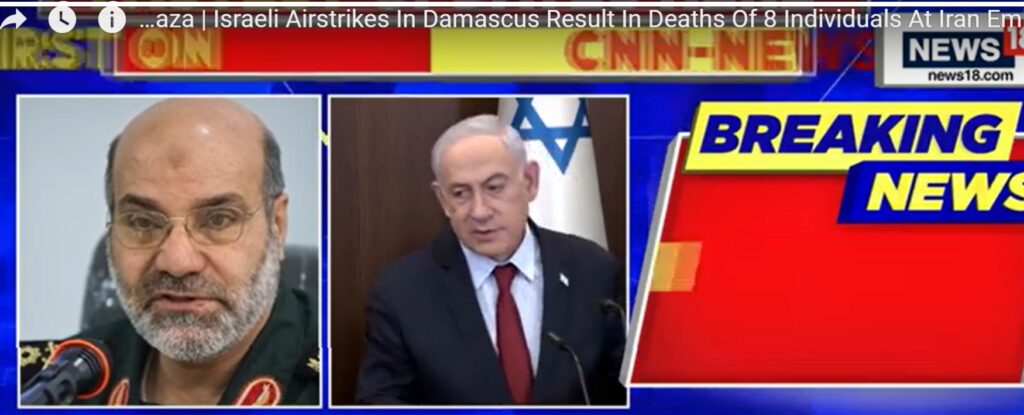While Israel has not officially claimed responsibility for the assassination, it remains silent. However, commentators in the Arab world speculate that Israel conducted the attack in retaliation to pro-Iranian militias launching a UAV from Iraq towards the city of Eilat, hitting a structure at a naval base the day before.
According to foreign sources, Israel has executed two significant assassinations since the October 7th incident: the first being the assassination of Saleh al-Arouri, the deputy head of the political bureau of Hamas, in Beirut’s A-Dahiah neighborhood, and the more recent assassination of Muhammad Reza Zahedi.
This latest assassination follows a pattern of targeting senior members of the Revolutionary Guards, reminiscent of the killing of Quds Force commander Qassem Soleimani by the US Army in Baghdad in January 2020.
The precision of the attack, based on accurate intelligence, resulted in the death of Mohammad Reza Zahedi, also known as Hassan Mahdawi, along with his deputy Haji Rahimi and several assistants. Zahedi was killed in an aerial attack while staying in a building near the Iranian Embassy in Damascus.
Israeli sources, as reported by The New York Times, confirm Israel’s involvement in the attack, which targeted a meeting of senior Palestinian and Iranian officials from the Revolutionary Guards.
Reports also indicate that Mohammad Saeed Izadi, responsible for the Palestine branch of the Iranian “Quds” force, was killed in the assault.
According to “Sky News Arabia,” Israel informed the US of the attack upon execution.
Zahedi, responsible for directing terrorist activities against Israel and maintaining direct contact with Hezbollah leader Hassan Nasrallah, played a pivotal role in facilitating weapons transfers from Iran to Syria and Lebanon.
His elimination aims to hold Iran accountable for its activities against Israel through proxies and serves as a warning for future actions, notably in anticipation of Eid al-Fiter and potential IDF operations in the Rafah area.
Recent visits by Hamas and Islamic Jihad leaders to Tehran, promising support from Supreme Leader Ali Khamenei against Israeli interference in the Gaza Strip, underscore tensions between Israel and Iran.
The assassination of Mohammad Reza Zahedi significantly weakens Iran’s operational capabilities, prompting condemnation from Syria and threats of retaliation from Iran’s ambassador to Syria, who labeled it a violation of red lines.
Israeli security officials detect indications of further planned attacks by Iran-affiliated groups deep within Israel.
Thus, the Damascus assassination should be interpreted as a signal to Iran that Israel’s reach extends throughout the Middle East.
Moreover, Israel braces itself for potential retaliation and escalation on the northern front, with Chief of Staff Major General Hertzi Halevi approving plans for continued combat operations in the IDF’s Northern Command.
In conclusion, while Iran may prefer indirect confrontations with Israel through its proxies, recent events indicate escalating tensions, potentially leading to further conflict in the region.




